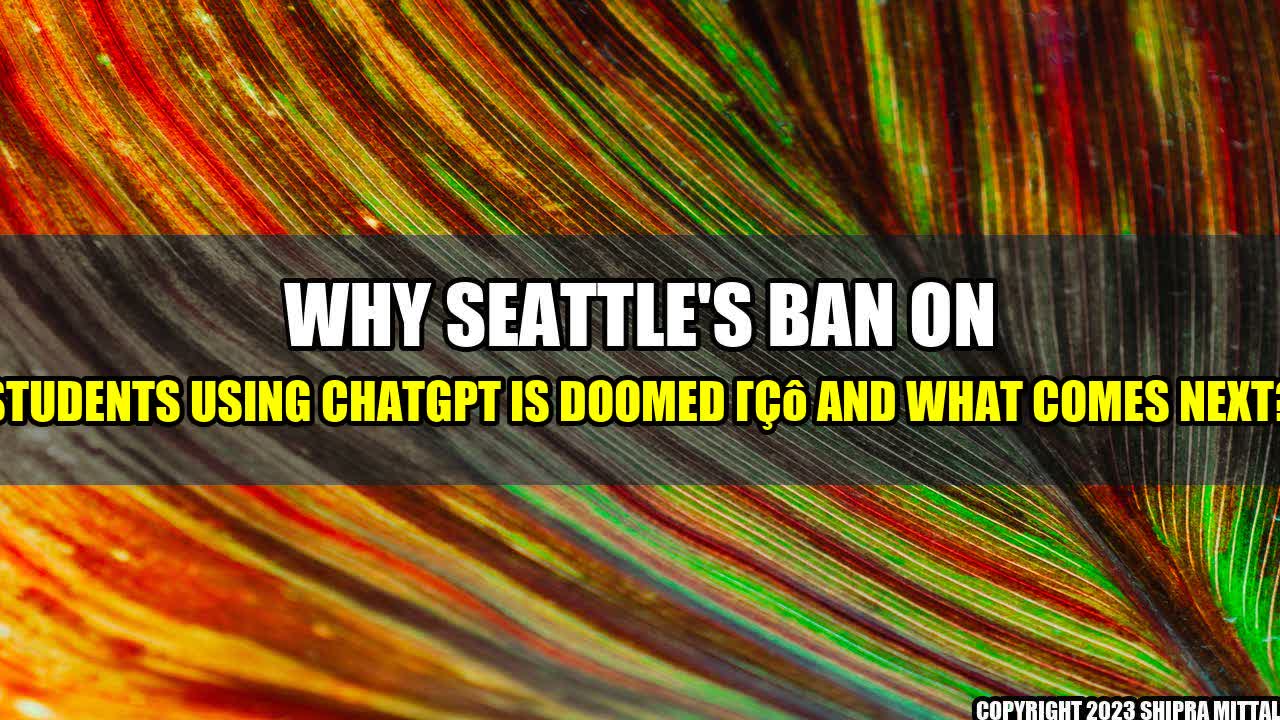Seattle – the Emerald City, known for coffee and grunge music. But lately, it's been in the headlines for something else – banning students from using ChatGPT.
"I was shocked when I heard the news. ChatGPT has been a crucial tool in my English classes. It has helped me improve my writing skills and learn new words. I don't know what I'll do without it," said Sarah, a high school student in Seattle.
The ban on ChatGPT came after concerns were raised about student safety and privacy. But critics argue that the ban is unnecessary and ineffective. Here's why:
Concrete Examples
Many schools around the world use chatbots like ChatGPT to help students with their studies. For example, the Georgia Institute of Technology created a chatbot called Jill Watson that helped students with their online coursework. Another example is Duolingo's chatbots, which help users learn languages.
ChatGPT is a powerful tool for language learners. It can help users learn new words, improve their pronunciation, and enhance their writing skills. It's also a great way to practice speaking and listening in a foreign language.
What Comes Next?
The ban on ChatGPT is unlikely to be effective in achieving its intended goals. Students will find ways to bypass the ban, or simply use other chatbots that are not banned. Instead of banning chatbots, schools should focus on educating students about online safety and privacy.
- Seattle should reconsider its ban on students using ChatGPT.
- Schools around the world should use chatbots to help students learn.
- Education about online safety and privacy is crucial for students.
In conclusion, banning chatbots like ChatGPT is not the solution to online safety and privacy concerns. Instead, schools should focus on educating students and providing them with the tools they need to stay safe online.

Social
Share on Twitter Share on LinkedIn